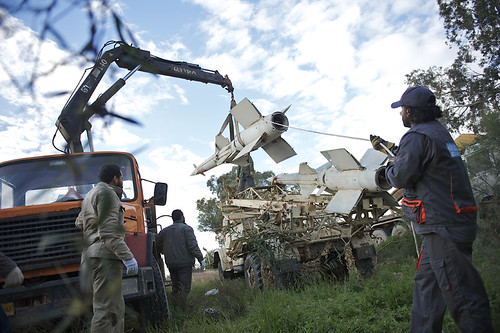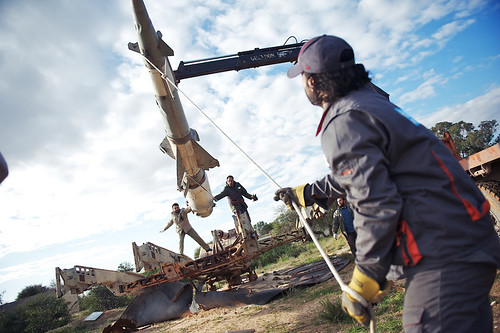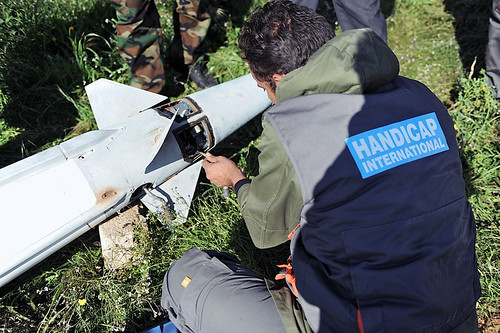Today I came across some images on
Flickr of work that is being done by
Handicap International, an independent international aid organisation. They were co-recipients of the 1997 Nobel Peace Prize as a founding member of the
International Campaign to Ban Landmines which led to the signing of the Mine Ban Treaty. They also received the 1996 Nansen Refugee Award, an award given by the UNHCR, for their work with refugees and victims of landmines.
A team of six worked to neutralize some anti-aircraft missiles that were sitting precariously on their launchpads, still loaded, and just metres from the main road to Tripoli. Each missile weighs almost 600 kilograms and measures eight metres in length. Two cranes were used to remove the missiles from their launchpads. They were then laid on the ground so that the workers could neutralize them which took between two to three hours to deactivate each missile. The team was made up of Libyans who were recruited and trained by Handicap International.
 |
| © J-J. Bernard/Handicap International |
 |
| © J-J. Bernard/Handicap International |
 |
| It takes about two to three hours to neutralize each missile. It is a painstaking but necessary task to ensure that civilians are out of danger.
© J-J. Bernard/Handicap International |
It will take months for the work to be completed but already in just a few weeks they have identified more than 600 explosive remnants of war that posed a danger to the people of Tripoli. They are also planning to launch a risk education campaign to warn people about the dangers of these weapons, especially for children who are the most common victims. Two more teams will begin working in Sirte which is one of the most highly contaminated areas in the country.
Thank you Handicap International for making Libya a safer place! For more information about the work being carried out in Libya by Handicap International visit their
Libya page.



Thank you for keeping us informed about positive developments in Libya. I hadn't heard anything about this before.
ReplyDeletethis's very positive, i like this post, those working in the background, some we don't know like this handicap International, some others we take for granted
ReplyDelete